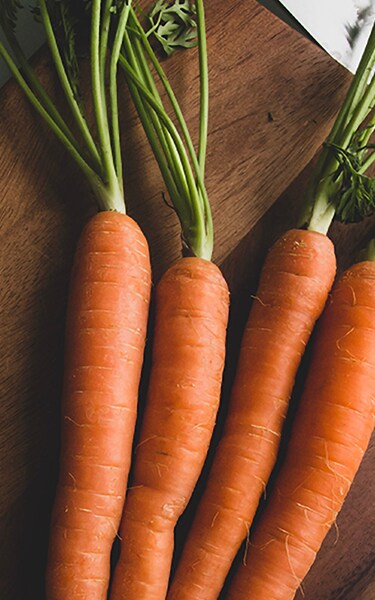One of the first root vegetables that come to mind, carrots, like most root vegetables, are 100% edible. What does that mean? It means all of it is safe to eat, including the green part.
And what gives carrots their colour?
Even though the whole world has accepted carrots as bright orange, this is nothing more than a marketing gimmick to sell only “perfect” looking carrots. It doesn’t make sense for a root veggie to be so shiny and bright, does it?
Carrots take on the characteristics of the soil they’re grown in. Depending on the season and soil characteristics, carrots grown in the same place or even a few kilometres apart can have completely different flavours, let alone the colour varieties.
That’s why carrots reveal a region’s diversity, fertility, and people’s respect for production.
How can we use it entirely?
Although we are not accustomed, it is entirely safe to use carrots and other produce with green ends. Nevertheless, it’s no reason to waste. You can store the carrot’s green parts in the freezer for later use in vegetable juices, soups, or smoothies.
If you tend to peel carrots, you can also store the peels along with the green parts or roast them in the oven for a delicious crispy snack.
Carrots keep their freshness for up to 3 weeks when stored in the FullFresh + compartment under ideal conditions. This way, despite the deteriorating looks, carrots retain their freshness in terms of nutrition and taste.
If you have excess carrots that you’d like to save from waste, carrot salads or juices are a great way to use up large amounts.
Knowing your food and how to use ingredients makes a huge difference. We need to care about its journey to our tables and show it the respect it deserves. Buying locally sourced products that are in season reduces food waste and supports a sustainable future one purchase at a time. Don’t forget to check out our other articles to find out what you can do with leftover foods and get more inspiration.
Share



